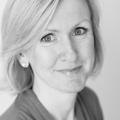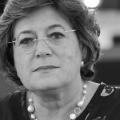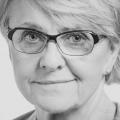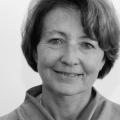Women Leading the Way in Brussels
These excerpts (slightly adapted) are published in full in Women Leading the Way in Brussels written by Claudia de Castro Caldeirinha and Corinna Hörst.
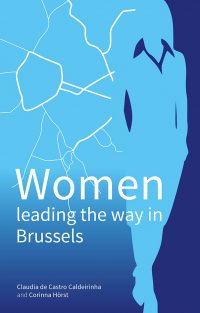 For more than 15 years, Claudia and I have had the privilege of meeting and working closely with many remarkable women leading the way toward more diverse and inclusive leadership in Europe. Given the invisibility of most of these women and their challenges and achievements, we wanted to highlight their stories for a broader audience. And with the European Union enduring trying times, when its rationale and purpose are being questioned, it seemed like an opportune time to reflect not only on its current diversity but also the types of leadership that can contribute to creating new, more inclusive options for Europe’s future.
For more than 15 years, Claudia and I have had the privilege of meeting and working closely with many remarkable women leading the way toward more diverse and inclusive leadership in Europe. Given the invisibility of most of these women and their challenges and achievements, we wanted to highlight their stories for a broader audience. And with the European Union enduring trying times, when its rationale and purpose are being questioned, it seemed like an opportune time to reflect not only on its current diversity but also the types of leadership that can contribute to creating new, more inclusive options for Europe’s future.
We believe that leadership — or the lack of it — is at the core of today’s challenges and tomorrow’s solutions. Leaders with diverse backgrounds, experience, skill sets, and expertise who can bring varied perspectives into the European “story” are needed to modernize the value-driven, peaceful, and prosperous unity among the current members of the European Union. This diversity is equally crucial to reform and modernize the European institutions in ways that reflect the reality of the diverse EU population.
Women make up half of the citizens of Europe. The stories of European women leaders have been largely untold. Unlike American women leaders, who have been more visible in public life — both at home and abroad — European women have been, until recently, reticent about claiming their space at the top.
Unlike American women leaders, who have been more visible in public life — both at home and abroad — European women have been, until recently, reticent about claiming their space at the top.
With this in mind, we have gathered together a collection of personal, frank, and revealing vignettes of 14 women who exercise leadership across different sectors in Brussels. The stories show how it is possible to lead in many different ways and with many diverse strategies.
By sharing the stories of these notable women, and by sharing our own understanding of Brussels as a distinctive power hub and some of the important experiences, connections, and insights we have made in this city, we hope to assist those women who plan to make a career in Brussels. Women Leading the Way in Brussels is also addressed to those already in Brussels who are doing amazing work but who would like to take advantage to the fullest extent of the opportunities provided by this city. In sum, we hope these stories and the women behind them will inspire other women, not simply to copy but to find their own leadership styles — and to make leadership and decision-making more reflective of the Brussels, Europe, and world that we aspire to live in: more inclusive, equitable, and hopeful.
Interestingly, most of our interviewees said that they would not consider themselves leaders and role models. This cautiousness can partially be explained by the complexity of Europe with its different regions and countries, the persistence of patriarchal systems, and the multiple national nuances concerning gender roles and policies.
Our book is a first contribution to these important discussions facing our European societies as to how European women experience and exercise leadership. We also share ideas, tips, and concrete advice, both throughout the different stories and in the final sections. Finally, we aim to encourage reflection on what it means to be a woman leader in the heart of Europe today.
Excerpts from some of the interviews:
Ann Mettler, Head of the European Political Strategy Centre, European Commission
Ann speaks of herself as having no national identity: “If I am anything, I am European.” Brussels was a natural place for her to settle and establish herself. She sees Brussels as a place offering many opportunities but acknowledges that it is essential to be able to work well with many different people of different nationalities and cultures: “You can keep your national identity but you need to be very comfortable with anyone.”
Ann also describes Brussels as a tough place. Having been a founder of an institution and an entrepreneur, Ann says: “I think Brussels is a place of opportunity but it is not a place that is naturally welcoming or friendly to people who come here to change things and shake things up. But if you are a talented professional, then you can do anything here.” Motivated, keen professionals can make it in this city, according to Ann. Young people should not be discouraged by not always being taken seriously at the beginning.
But what is still missing, according to Ann, is a critical mass of women in leadership positions, which is necessary for women’s abilities and contributions to stop being questioned. Ann believes that the ability to speak publicly is crucial to advancing and creating a successful career. The city is a place of numerous events and meetings. “I have found it really important in Brussels to speak publicly, because if you can’t convey whatever it is you are thinking in a compelling way, then it is hard to be heard and seen.”
Ana Gomes, Member of the European Parliament
Ana recalls her collaboration with the European Women’s Lobby during the run-up to the European Parliament elections in 2009 and the constitution of the new European Commission, when they demanded a minimum of one third of women in the College of Commissioners in the second Barroso Commission: “I think that, because we were so assertive, they took us seriously. Now it is the new normal!”
In Brussels, women have both challenges and opportunities, and the relation between these two is, according to Ana, to a large extent in the hands of women themselves: “If women take themselves seriously and fight, they will be seriously recognised,” she says. Quotas are an important political development. For Ana, the struggle for gender equality is a process that requires both political will and adequate legislation. She would like to see European parties develop their own “Emily’s List,” the U.S. Democratic Party initiative that has proactively supported hundreds of women to win elections, at different government levels. To obtain results, it is fundamental to press individual member states and not only the Brussels EU institutions.
Danuta Hübner, Member of the European Parliament
Danuta talks of gender discrimination as a “permanent element of our landscape in Europe, in every aspect of our lives, and in all institutions.” She observes the pervasive bias still present, for example, in the European Parliament, where female MEPs are still not as recognized and respected as male MEPs. For her, the situation is still “painful” to observe.
Danuta believes that both men and women question women’s authority more often than men’s, and doubt women’s competence. This is reflected in salary and promotion patterns, public positions, language, family life patterns, etc. Often, these double standards are expressed in subtle ways that cannot be easily explained and that makes them even more difficult to address. For example, Danuta recalls that she was frequently called Danusha (a childish diminutive) by her peers in government. In TV debates, while men were addressed by their titles as ministers or doctors, Danuta was addressed simply as “Mrs.” It was only through living in the United States for a period that she came to realize that this treatment was condescending and patronising: “Women should not accept being downgraded.” Since then, she demands the same treatment as her male peers by speaking up and drawing attention to the biases.
Monique Pariat, Director General, European Commission
Monique’s Brussels is the Brussels of the European institutions: powerful, multicultural, with a dual nature — the capital of a small country and the heart of a powerful international actor. A city where there is a constant striving for compromise. “We are often in the driving seat for something that will be legally binding, so decision-making requires the capacity to move around different cultural approaches, different ways of reacting, different approaches to a problem and also the necessity to find compromise and joint solutions.”
When Monique joined the European Commission, the EU was composed of only twelve member states. It now has 28 members (which will fall to 27 after Brexit), so Monique has experienced the EU’s constant evolution and restructurings from within: “What was very rewarding for me was the way we integrated people from different backgrounds. Very rapidly we found it natural to work with each other — at the beginning with the Spanish, then with the Finns and then with the Czechs and the Romanians.” The cultural and national diversity makes professionals in Brussels realize that you cannot speak the same way to different nationalities. Monique thinks of the different European peoples as a big family and of Brussels as a place where “everybody can feel both at home and not far away from home.”

